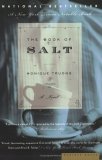Summary | Excerpt | Reading Guide | Reviews | Readalikes | Genres & Themes | Author Bio

Critics' Opinion:
Readers' Opinion:
First Published:
Apr 2002, 272 pages
Paperback:
Jun 2004, 272 pages
"But there are still the Russians, Hungarians, Spaniards . . . not nearly as well endowed but in other ways so charmingly equipped." The laughter that immediately followed this observation told me that the table next to mine was commenting on more than just money. When gathered in their cafés, Parisians rarely spoke of money for very long. They exhausted the topic with one or two words. Sex, though, was an entirely different story, an epic really. I always got my gossip and my world news for that matter from the cafés. It would certainly take me awhile, but the longer I stayed the more I was able to comprehend. Alcohol, I had learned, was an eloquent if somewhat inaccurate interpreter. I had placed my trust that December night in glass after glass of it, eager not for drink but for a bit of talk. I also had that night no other place I had to be, so I sat and stared at the cigarette-stained walls of the café until my wallet was empty, my bladder was full, and until I was very drunk. Worse, the alcohol had deceived me, made me promises and then refused to follow through. In the past the little glasses had blurred the jagged seams between the French words, but that night they magnified and sharpened them. They threatened to rip and to tear. They bullied me with questions, sneering at how I could sit there stealing laughter, lifting conversations, when it was now common knowledge that "the Americans are going home." Panic then abruptly took over the line of questioning: "Would my new Mesdames go with them?" Or, maybe, the question was just a matter of "When?"
I did not remember asking the waiter for pencil and paper, but I must have, as I never carry such items in my pockets. The cafés used to give them out for free. So French to sell water and to give such luxuries away. The content of my letter was dull, crammed with details only my oldest brother would be interested in: my health, the cost of underwear and shoes, the price of a métro ticket, my weekly wage, the menu of my last meal, rain bouncing off the face of Notre-Dame, Paris covered by a thin sheet of snow. I had forgotten how different my language looks on paper, that its letters have so little resemblance to how they actually sound. Words, most I had not spoken for years, generously gave themselves to me. Fluency, after all, is relative. On that sheet of paper, on another side of the globe, I am fluent. The scratching of the pen, the writhing of the paper, I did not want it to stop, but I was running out of room. So I wrote it in the margin: "My Mesdames may be going home. I do not want to start all over again, scanning the help-wanteds, knocking on doors, walking away alone. I am afraid." I had meant to place a comma between "alone" and "I am afraid." But on paper, a period instead of a comma had turned a dangling token of regret into a plainly worded confession. I could have fixed it with a quick flick of lead, but then I read the sentences over again and thought, That is true as well.
The first line of my brother's response startled me, made me wonder whether he wrote it at all. "It is time for you to come home to Viet- Nam," he declared in a breathtaking evocation of the Old Man's voice, complete with his spine-snapping ability to stifle and to control. But the lines that followed made it clear who had held the pen: "You are my brother and that is all. I do not offer you my forgiveness because you never had to apologize to me. I think of you often, especially at the Lunar New Year. I hope to see you home for the next. A good meal and a red packet await you. So do I." The letter was dated January 27, 1934. It had taken only a month for his letter to arrive at the rue de Fleurus. He offered no explanation for his delay in writing except to say that everything at home had changed. He wrote that it would have been better for me to hear it all in person. What he meant was that paper was not strong enough to bear the weight of what he had to say but that he would have to test its strength anyway.
Copyright © 2003 by Monique T. D. Truong. Reprinted by permission of Houghton Mifflin Company.





The House on Biscayne Bay
by Chanel Cleeton
As death stalks a gothic mansion in Miami, the lives of two women intertwine as the past and present collide.

The Flower Sisters
by Michelle Collins Anderson
From the new Fannie Flagg of the Ozarks, a richly-woven story of family, forgiveness, and reinvention.

The Funeral Cryer by Wenyan Lu
Debut novelist Wenyan Lu brings us this witty yet profound story about one woman's midlife reawakening in contemporary rural China.
Your guide toexceptional books
BookBrowse seeks out and recommends the best in contemporary fiction and nonfiction—books that not only engage and entertain but also deepen our understanding of ourselves and the world around us.